As the Russian-Ukrainian circumstance continues to evolve while communication between nations, their diplomats and leaders continues to occur, it was not surprising to most people I don’t believe, that China quite recently decided to state unequivocally its support for Russia regarding this, as well as, allegedly, any other endeavor. As China maintains ambitions for Taiwan, it should’ve surprised no one to think that they would attempt to further a precedent long ago set by all sorts of nations, states and polities over the years.
Yet in the backdrop of the obvious motives, there are usually more obscure motives too. For China, which already produces goods for nations and people the world over, each nation that the western powers cast aside by means of sanction or isolation becomes simply another market for that nation to, in their own way, bond with, serve, and reap the rewards from. In this new alliance that was recently announced, we simply see shades of other innovations that the Chinese routinely make with nations that the international community disapproves of.
But instead of working through those problems proactively, sanctions are often placed upon the nations or their leaders by a nation like the United States, or by the collective EU – to largely undesirable and unfavorable results. This is a real problem, and it has been dating back to those decades before either American or Soviet spheres of influence existed in dominance; there cannot be, for a healthy, properly functioning international community, any room for “teams” on earth – the time for that has mercifully passed long ago.
But it remains a fact of life that states and nations do exist. Furthermore, there are nations that, when polities are isolated instead of being aided or worked upon in more properly diplomatic manners by a large collective of the world’s nations, will look to, on the one hand, fill the material or power void that the now-afflicted nation still requires, regardless of who they get the resources, finished products or diplomatic or cultural influence from.
China does this all over the world, from Iran to Russia, Afghanistan to Venezuela, North Korea to Cuba. They take advantage of our poor choices regarding international circumstances that are not seen as acceptable by the United States, yet we are, ultimately, the ones making the poor choices which China merely decides to exploit. Put in another way, were the US to not make those mistakes regarding foreign policy – were it to offer aid, friendship and organized and multilateral paths forward with unfriendly nations – China could not take advantage of the opportunities, of which are basically presented to them, by American negligence and tactlessness.
A reality of this situation, and a reality which is more apparent now than it was likely conceded to be forty and fifty years ago, is that casting nations onto the outskirts of the international community is not as isolated a place as it might have once seemed to be. China has both loftier ambitions to affect the greater world than did the Soviet at any time after the death of Lenin and the exile of Trotski, and exists today as a greater economic power than the Soviet Union ever was either. When China offers aid or friendship to other nations, no matter their short or long-term ambitions regarding those nations, they have a great deal to offer the targeted polity.
Hence, sanctions, which rely on isolation and depravity to varying degrees to optimally work, become weaker and less threatening as another source for similarly desired materials or relationships can be found; failed sanctions against Italy in the leadup to the Second World War remain as historical evidence, should contemporary evidence be unconvincing.
But China, in juxtaposition with Italy of nearly a century ago, is perhaps better-positioned to capitalize on the sanction regime of the United States and it’s allies than anyone else could or would be, precisely because of its relationship with multinational corporations the world over. While countries decry China for the shortcomings or failures of their nation or society, the outcry and abuses never stop those nations from using China as a massive source for so many of the manufactured products of their nation.
Thanks to this rather unique relationship – of which the US-Saudi relationship is most comparable to – China can both be accused of, what the White House has called “genocide,” while they exportd – even during the “Trade War” – just under 20% of all goods imported by the United States in 2020. The US is, to be sure however, not alone in this hypocrisy, as other western allies of the US also enjoy similar relationships with China.
This nation is, uniquely it seems, isolated from certain pushback because of the way and position in which it has placed and developed itself in relation to the western nations, their capital, as well as the less commercially or industrially developed polities of their region and the greater world. For these reasons, as well as for a bevy of other reasons I’ve previously gone over in other pieces, the United States must rethink how it goes about trying to work towards better relationships with nations that might be ostensibly disagreeable to the sensibilities and values of the society and nation.
China is, to be sure, not a nation to be ultimately feared or hated, but a nation that, like our own, wishes to be better tomorrow than it was today – no matter that it routinely fails. While how a nation fails is always despicable because of how those failures affect and destroy the lives of real people, families and communities, and how a polity covers up those failures creates a notion that things simply cannot and will not change, it is through the mutual pushing and prodding of amicable nations that can help to push countries towards a healthier and better change that the people of their nations can fully enjoy.
It is quite similar to what Henry A Wallace, the former Vice President and cabinet member under Franklin Delano Roosevelt, and for a short time, Harry Truman, stated in 1946 in reference to the Soviet Union under Joseph Stalin.
“Under friendly peaceful competition, the Russian world and the American world will gradually become more alike. The Russians will be forced to grant more and more of the personal freedoms; and we shall become more and more absorbed with the problems of social-economic justice.”
While there are some other useful bits in that speech that remain relevant today, this passage strikes me as particularly relevant to the quandary facing the United States and China right now. It is important that each nation exports those qualities and virtues which emanate most beautifully out of it to trusting or willing neighbors of this planet, yet it is important also to import the more valuable lessons or notions of other cultures and nations to one’s own polity when to choose otherwise would be barbarous.
When the United States attempts to isolate any nation in some 21st century containment strategy, it does not work with all of its might to bring positive change in non-punitive ways to the greater world that we make but a part of. When America settles with sanctioning a nation it doesn’t particularly love instead of working to develop some mutual or multilateral plan of action with a nation or nations, it not only diminishes its role in helping the people of a nation or its influence in pushing for positive changes within governments and societies all over the planet, but it sets in motion developing and blossoming relationships between nations that have little positive admiration or appreciation for a United States that would rather put nations out upon the outskirts of the international community diplomatically and economically speaking.
Therefore, while the sanction regime doesn’t really work at all, it also is likely creating allies of disagreeable nations where friends could be made by more vigorous American diplomatic entreaties. And for each nation that becomes allies with one faction and enemies with the other, sanctions will work less and less well still, as the faction that would very likely cooperate with them continues to grow with each isolated and rejected country. Sanctions not only do not work, but they actually create an international environment where they will work less and less well over time too.
The best recourse to the sanction regime is to work with the diplomats of other nations in settings like Oslo, Geneva and Vienna, etc, and by working to create multilateral accord type agreements that, when followed in good faith, can create a means of development and change for nations and the international relationships they keep without the need to isolate other people and polities of the world. By working towards this end with the world, the United States can also work to improve its ties with China, and can look to push for economic and social innovations that would benefit that nation while absorbing positive aspects of China’s own society and timbre.
While each nation likes to think of themselves, in some ways, as inconceivably more moral than the other, the truth of the matter remains that, like the people which make up the very polities themselves, more can always be learned from one another, and each nation, society and peoples can always improve and better ourselves. While both China and the United States point out the absolute worst qualities and lowlights of each others recent and contemporary history, neither works towards positively influencing one another towards any real, positive innovation by posturing in frustrated, aggressive manners.
For the sake of all of the people around the world who suffer, inside China, outside of China, in the places where sanctions dominate the landscape, and even our own United States of America, a better recourse than sanctions and the eternally recurring and reforming international division of polities into factions and sects, aligned based upon a shared economic system, superficial or material interests, religion or governmental system. Without change today and moving forward, there will simply be no change until future generations choose to stop the cycle that continues to entrap and ensnare nations and their peoples.

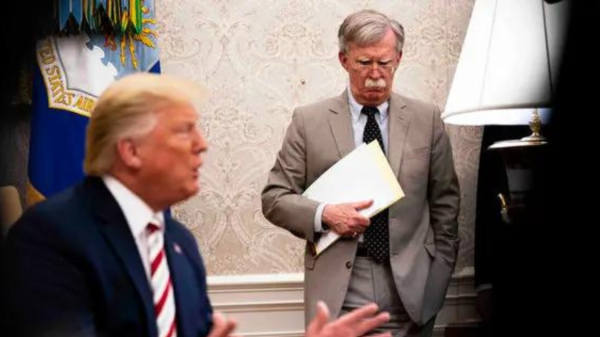
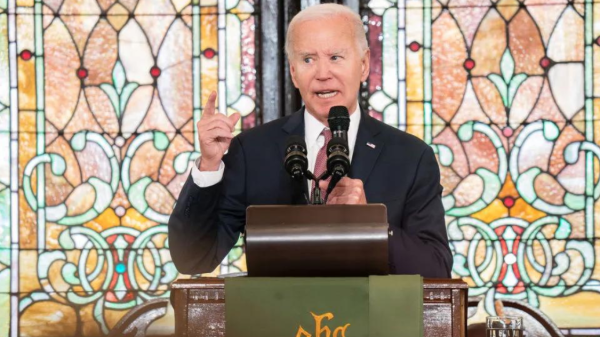



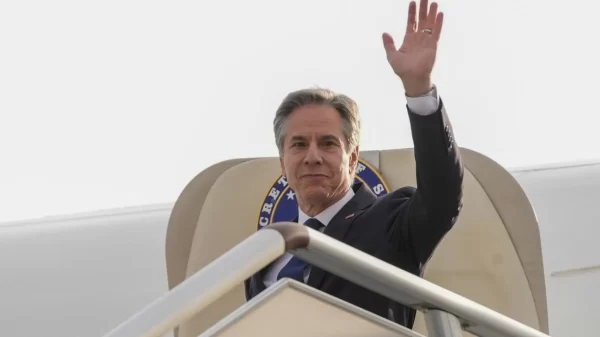
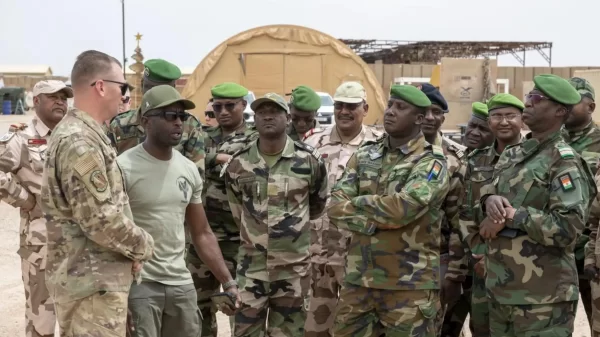
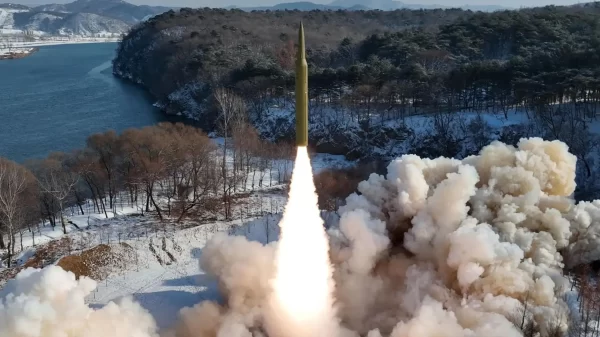



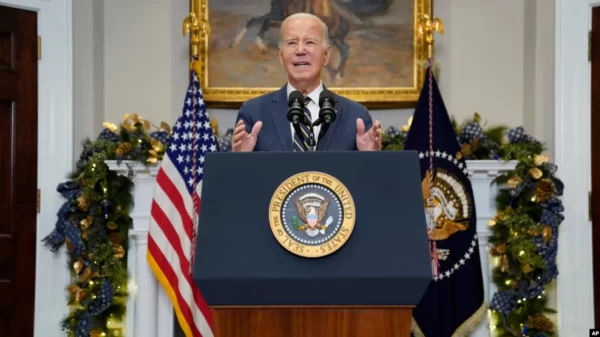

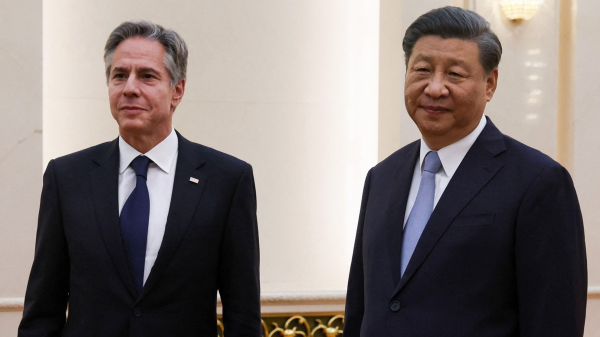







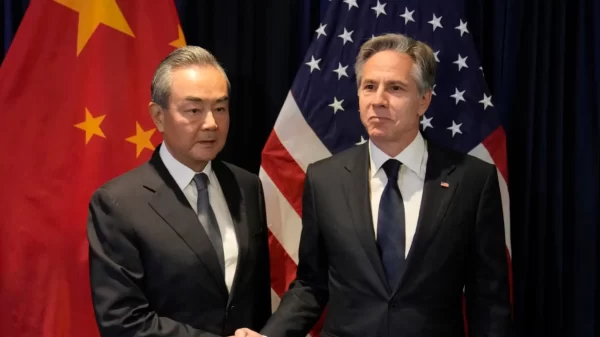








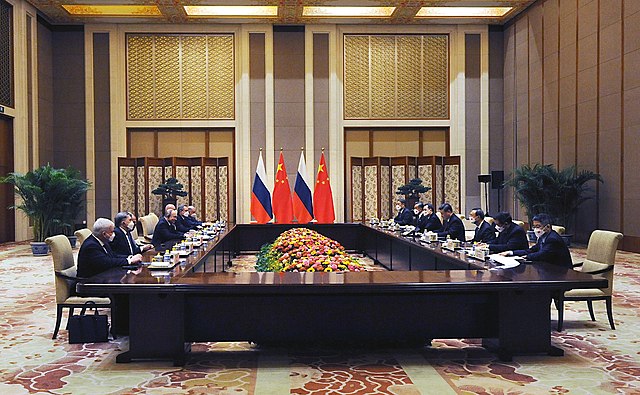





![Secretary of State Antony J. Blinken meets with Russian Foreign Minister Sergey Lavrov in Geneva, Switzerland, on January 21, 2022. [State Department photo by Ron Przysucha/ Public Domain]](https://transatlantictoday.com/wp-content/uploads/2022/01/Secretary_Blinken_Meets_With_Russian_Foreign_Minister_Lavrov_in_Geneva_51833856514-100x100.jpg)



